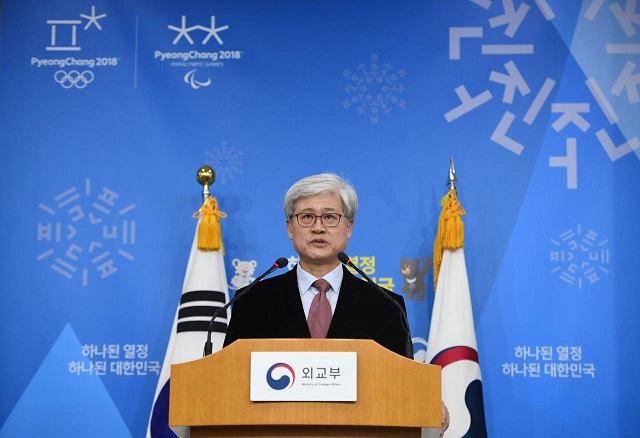
South Korean Foreign Minister Kang Kyung-wha apologised for the controversial deal as a panel appointed by her in July to investigate the negotiations leading up to the agreement unveiled its results. "I apologise for giving wounds of the heart to the victims, their families, civil society that support them and all other people because the agreement failed to sufficiently reflect a victim-oriented approach, which is the universal standard in resolving human rights issues," Kang told a news conference.
US sanctions North Korean missile experts, Russia offers to mediate
Under the deal, endorsed by South Korean President Moon Jae-in's predecessor and Japanese Prime Minister Shinzo Abe, Japan apologised to former comfort women and provided 1 billion yen ($8.8 million) to a fund to help them. The two governments agreed the issue would be "irreversibly resolved" if both fulfilled their obligations.
But Moon has said the South Korean people did not accept the deal. The investigation concluded that the dispute over the comfort women, a Japanese euphemism for the girls and women, many of them Korean, forced to work in wartime brothels, could not be "fundamentally resolved" because the victims' demand for Japan's legal compensation had not been met.
Tokyo says the matter of compensation for the women was settled under a 1965 treaty with Seoul. Japanese Chief Cabinet Secretary Yoshihide Suga said the agreement that the issue had been resolved “finally and irreversibly” had been confirmed by both governments.
"It is extremely important that this agreement be steadily implemented," Suga told a regular news conference before the report had been released. "The government will continue tenaciously to urge the South Korean side at every opportunity to steadily implement this agreement."
Pakistani student honoured by Seoul University
South Korea and Japan are key to international efforts to rein in North Korea's nuclear and missile programmes that it pursues in defiance of UN Security Council resolutions. The comfort women issue has been a regular cause for contention between Japan and neighbours China and North and South Korea since the war.
Japan colonised the Korean peninsula between 1910 and 1945 and occupied parts of China before and during World War Two. The South Korean government will review the result of the investigation and translate it into policy after consulting victims and civic groups that support them, Kang added.









1732105641-0/BeFunky-collage-(78)1732105641-0-270x192.webp)







COMMENTS
Comments are moderated and generally will be posted if they are on-topic and not abusive.
For more information, please see our Comments FAQ